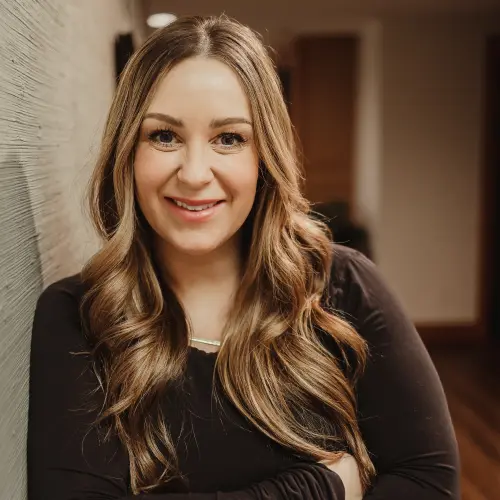
Is Self-Harm Addicting?

Written By: Amanda Lundberg

Clinically Reviewed By: Dr. Don Gasparini
March 9, 2023
8 min.
No one is immune from pain, so developing coping mechanisms to handle emotional pain is crucial. Some of those coping mechanisms can be damaging, such as self harm. But can a person get addicted to this avoidance strategy?
Learn more about our Clinical Review Process
Can self-harm be addicting?
Science reveals that a behavioral addiction shares standard neurobiological foundations with a substance abuse addiction. Behavioral addictions include gambling, shopping, exercise, work, and sex. The literature suggests that self-harm, sometimes referred to as nonsuicidal self-injury, can also be conceptualized as addictive behavior.
Like a substance use disorder, self-harming is usually hidden and highly stigmatized. The motivations may be diverse but typically include a desire for reward or relief. It’s difficult for people who do not use self-harm as a coping mechanism to understand why anyone would.
Most people are unwilling to cause self-harm deliberately. But for some people, there’s a connection in the brain that provides some temporary relief from emotional distress. As many have described, the physical pain of self-injury seems to help mask the emotional pain.
A growing body of evidence confirms that self-harming behavior can make an individual think and feel like they cannot manage without the behavior. Some people may experience an increase in the number of times and intensity they engage in self-harm, which appears in an addictive pattern similar to substance use disorders. Some of the behaviors that indicate self-harm is a behavioral addiction include:
- See self-harm as a solution
- Being focused on self-harming
- Feeling a build-up of tension that is released by self-harming
- Continuing self-harm, although it causes more stress
- Feel a sense of relief after self-harming
Anyone struggling with self-harming behavior should seek immediate help from a qualified therapist skilled in self-injury. Using a customized addiction treatment strategy can significantly lower the risk of a suicide attempt and help develop healthier coping mechanisms.
What is self-harm?
Self-harming behavior is the term used to describe intentionally injuring yourself for emotionally driven reasons that result in nonsuicidal injuries. This can include a wide range of actions and behaviors, the best known of which is cutting.
Join the Charlie Health Library
Get mental health updates, research, insights, and resources directly to your inbox.
You can unsubscribe anytime.
However, other ways of inflicting pain or damage to your body include burning, pulling out hair, bruising yourself, punching yourself, and scratching. Self-harm can also have internal damage, such as drinking excessive alcohol, using street drugs, or deliberately participating in unsafe sex.
Behavioral health is crucial to improving the quality of life, and self-harming behavior is associated with other mental challenges, such as low self-esteem. Other co-occurring conditions include depression, anxiety, and bipolar disorders. Roughly 5% of people participate in self-harm, women more than men. The intention is not suicide, but there is the potential that without help, people who self-harm have a higher risk of suicidal behavior.
How often are people self-harming?
Self-harming activities tend to begin in the teen or early adult years. Some people may stop using this coping strategy once or twice, while others continue to engage in these activities more frequently and have trouble stopping. Many people relate that self-harm gives them an immediate sense of relief, but over time the emotions that trigger self-harm continue to be present and may worsen.
As the underlying emotional distress worsens, it can lead to escalating self-harming behaviors. There are physical, emotional, and social consequences of self-harm, including permanent scarring, infection, guilt, shame, and avoiding friends, family, and loved ones who may not understand. A crisis text line can help with emergent needs as you request an appointment with one of our skilled mental health professionals.
What is teen self-harm addiction?
Emotions are tricky, and self-injurious behavior is often the result of negative emotions and poor coping skills. Teenagers may cut to mask emotional pain, regulate emotions, seek acceptance, or punish themselves. Adolescent self-harm can be associated with eating disorders, mood disorders, childhood trauma, or substance abuse disorders.
When a child or teen is hurting so badly that they turn to self-harm, parents and caregivers often feel the pain too. Numerous myths about adolescent self-harm may interfere with getting mental health help, including:
- Children and adolescents are just seeking attention
- Boys do not self-harm
- Cutting is the only type to worry about
- Only troubled teens with suicidal thoughts use self-harm
- If a parent or caregiver brings up the subject, the teenager could be tempted to try it
- Adolescents grow out of self-harming behavior, so there's no point in treatment
A CDC analysis published in March 2022 sheds light on the growing mental health challenges teenagers have experienced throughout the COVID-19 pandemic. Even before the pandemic, data from the CDC showed that mental health was worsening in high school students.

The added emotional stressors may also contribute to adolescents who find comfort in self-harming behavior. CDC data also showed that it is essential for adolescents to see adults and peers to whom they feel connected. Teenagers who felt connected had a lower risk of contemplating or attempting suicide.
This knowledge points to the crucial role that crisis counselors and family therapy play in addressing the needs of children and adolescents who do not have healthy coping strategies to deal with emotional pain. Adolescent self-harm can be overwhelming and challenging for parents and caregivers. While a kids helpline can help immediately, family therapy can support caregivers and offer strategies to support children, adolescents, and young adults who have developed self-harming behavior.
How to cope with self-harm
Caregivers, adolescents, and young adults often have questions about how to cope with self-harm. Emotions can be painful, and it's normal to seek out coping strategies that help process some of the hard things in life.
Do you need more support with
your mental health?
Charlie Health can help.
It is helpful to identify negative emotions and feelings that trigger self-harm urges. Some people use self-harm to distract themselves from negative feelings; others believe it gives them a sense of control over those negative feelings.
The methods a young person uses to harm themselves can go unrecognized when the damage is covered by clothing, or the self-harming behavior is internal. In the middle of intense self-harm urges, imagining that it's possible to do anything else can be difficult.
You can take steps to help when you are angry or frustrated, including delaying self-harming by making a promise not to give in to the urges for a specified period, such as five minutes. You can also try distracting yourself through activities like exercise, hitting cushions, or shouting and dancing.
The distractions you use won't work for everyone and may lead to intensifying your feelings. That's why it is helpful for a young person to work through feeling self-harm urges by speaking to a skilled therapist to reduce the risk of nonsuicidal self-injury.
You can help a young person who self-harms by offering connection as a friend or loved one so they can share their feelings without judgment or condemnation. Encourage the individual to seek professional mental health services to overcome their self-harming urges and develop new strategies while getting at the root of the mental health challenges.
Deliberate self-harm is an outward expression of inner pain that may have a connection with childhood trauma and other negative emotions. When a person has the urge to self-harm, encourage them to use a crisis text line or call the National Suicide Prevention Lifeline at 988 when there is no other immediate help for nonsuicidal self-injury. Remember that self-harm recovery is a journey that requires patience, professional support, and a supportive network of friends and family.
How to support a loved one who is self-harming
It’s challenging to know what to say when someone you love is harming themself, and you may have questions about how to support a loved one who is self-harming. One of the most requested actions from friends and family is to be there and listen to your loved one if they want to talk about what's going on without judging what they say or have done.
The power of a listening ear can help encourage your loved one to seek professional help and overcome self-harming urges. It is important not to label individuals because they are much more than their behavior. For example, your friend is not a “cutter.” They are your friend, relative, or co-worker with hopes and dreams, just like you.
It is also important to be patient. You may not understand why they are self-harming, but it's important not to be shocked or startled by any admission they make about their behavior or unhealthy coping skill they use to deal with emotional pain.
Knowing what to say may be just as important as knowing what not to say. Make sure not to stare at any visible scars or injuries. Although you might be curious, curiosity doesn't help your loved one to get help.
Don't invalidate your loved one’s feelings. When you minimize their experience with intense emotions, they feel worse, and you may damage your relationship. Also, you may feel you have the power to make your loved one stop self-harming, but you don't. Issuing an ultimatum, such as, “If you don't stop, I won't be your friend anymore,” may worsen the situation. Your loved one could feel misunderstood, powerless, and trapped, leading to more dangerous behavior, such as suicidal thoughts.
Self-harming behavior is an outgrowth of mental illness. While it is important to have boundaries to protect your mental health, try not to shut the door on the relationship so you may have the opportunity to encourage your loved one to seek mental health treatment.
Treatment for self-harm addiction with Charlie Health
Many overcome self-harming behavior with treatment that allows a person to regain control. Your skilled mental health professional from Charlie Health will develop a customized plan, integrating approaches that may include cognitive behavioral therapy and address any co-occurring disorders.
Treatment for self-harm addiction uses individual therapy and may include personalized therapeutic groups and family therapy. Self-harm treatment is aimed at helping the person overcome occurring self-harm and develop healthier coping strategies.
The skilled mental health therapists at Charlie Health create a personalized treatment plan for every client based on their unique needs. Our experienced clinicians take an empathetic and compassionate approach to support you along every step of your recovery.
The first step to getting help can feel overwhelming, yet getting the help you need to stop self-harm behavior is a healthy and fulfilling decision. Reach out to Charlie Health today.
Emergency care
If you or someone you love is actively self-harming or dealing with suicidal ideation, please call or text the National Suicide Prevention Lifeline at 988 or visit your nearest emergency room.
References
SAMHSA, Self Harm https://www.samhsa.gov/mental-health/self-harm
CDC,New CDC data illuminate youth mental health threats during the COVID-19 pandemic https://www.cdc.gov/media/releases/2022/p0331-youth-mental-health-covid-19.html





